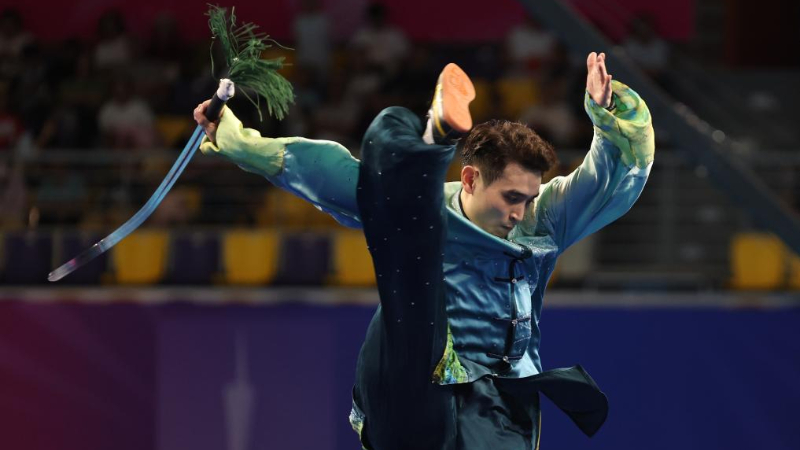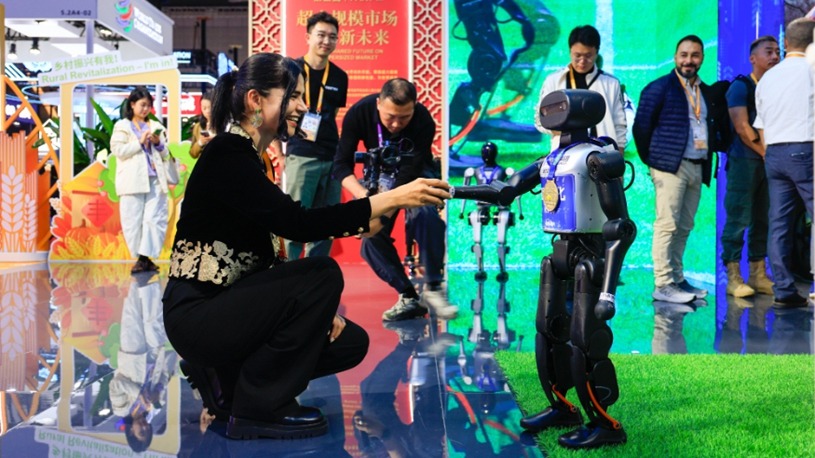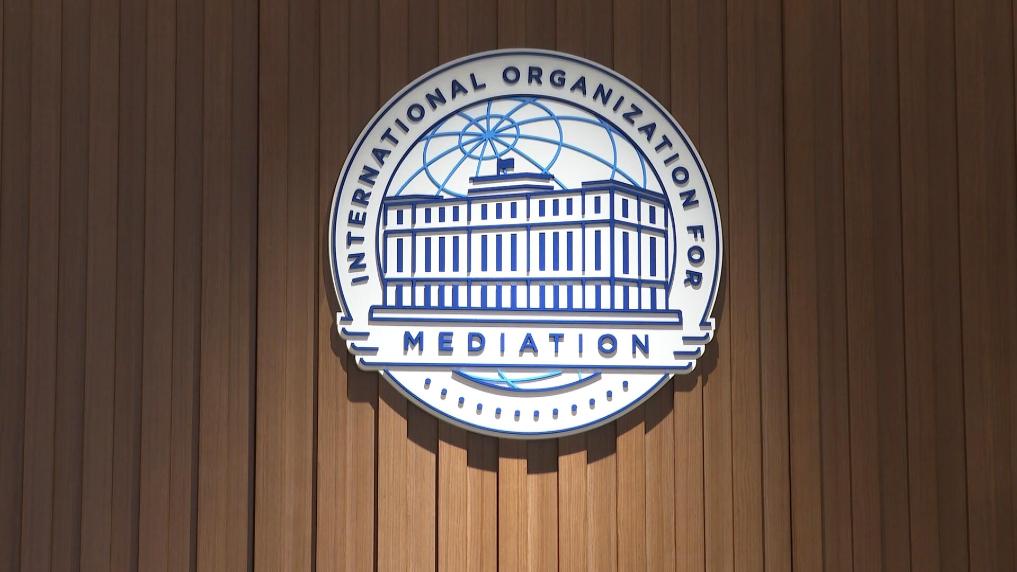Global scholars urge reassessment to steer AI in academia
Source: Xinhua
Editor: huaxia
2025-11-09 23:17:15
by Xinhua writers Shi Yifei, Wang Aihua and Xiao Bowen
BEIJING, Nov. 9 (Xinhua) -- With a few keystrokes and a click, artificial intelligence (AI) generates sophisticated midterm essays, sleek PowerPoint presentations and a crisp summary of 100-page readings in just seconds. This type of homework, without AI intervention, would typically take university students hours or even days to complete.
Seemingly omnipotent AI-powered chatbots, such as DeepSeek and ChatGPT, have quietly infiltrated campuses in China and beyond. But as more students turn to AI for help, educators are growing concerned about its broader impact and believe it is time to refine the role of AI in higher education.
At the Beijing Forum 2025, held from Friday to Sunday, education experts from around the world voiced worries that AI's growing presence in academic assignments -- could erode the ability of students to think independently and creatively.
Jeffrey Lehman, vice chancellor of New York University Shanghai, said at the forum that if students rely too much on AI for article summaries, they will be less able to understand the author's intent and question the validity of the content -- critical skills needed to read and analyze the arguments contained in an article.
"If students begin outsourcing tasks to AI that are fundamental skills they need to develop, they may harm themselves in the long run," Lehman warned.
Yang Junjie, a philosophy PhD student at China's Peking University (PKU), told Xinhua at the forum that he found brainstorming processes involving AI particularly enlightening.
"It helps me clarify concepts, argument chains and underlying assumptions that I might not fully grasp on my own," Yang said. While he acknowledges that AI can't generate entirely new knowledge or ideas -- he sees it as a useful tool to refine his thinking.
"We tell our students. You're the pilot and AI is the co-pilot. It's usually good to have multiple co-pilots," Lehman added. "It's helpful to have support, but you still need to steer the ship."
Lehman's concern about a possible decline in students' ability to engage critically with content is echoed by Laurie Ann Paul, a professor of philosophy and cognitive science at Yale University. For Paul, the value of academic work lies in the personal process of thinking and writing.
"The first draft of an essay is difficult, but it's an expression of your own mind. For better or for worse, it's part of who you are," she said. "Students mustn't lose that ability to wrestle with their thoughts and express them authentically."
Paul also spoke about the risk of AI's "hallucinations" -- generating false or misleading information. She stressed the importance of students remaining skeptical and critical when using AI.
Yet, some scholars take a more cautiously optimistic view of AI's pervasive presence. Michael Levitt, the 2013 Nobel laureate in chemistry and a professor at Stanford University, uses several different AI chatbots every day and views AI as a tool to spark curiosity, not replace it.
He advised that while AI provides the answers, it is essential to "stay curious like an eight-year-old, and be wise like an 80-year-old" to ask the right questions.
The broader academic world is also adjusting to the inevitable integration of AI. Gong Qihuang, president of PKU, observed that AI is influencing not just how students learn -- but the very principles and ecosystem of higher education itself.
"The true value of AI in higher education lies in its ability to drive widespread changes in academic approaches, teaching methods and talent development systems through technological innovation," Gong elaborated.
As the technological revolution unfolds, Tan Eng Chye, president of the National University of Singapore, believes the focus should be on ensuring students are equipped with foundational data and computational thinking skills.
"AI literacy must go beyond a basic understanding. It should be integrated across all disciplines -- from the arts to business to social sciences. An interdisciplinary approach, where AI is connected to real-world applications, will help students see its relevance, use it meaningfully and better prepare them for an AI-driven workforce," he added.
Despite AI's potential to help bridge education gaps among regions and student groups from diverse backgrounds -- experts also caution that its benefits may not be equally accessible to all students.
Bao Wei, a professor with the Institute of Education at Xiamen University in east China, shared their findings that college students from disadvantaged families tend to use AI at a higher proportion compared to other groups. However, their use tends to be more superficial -- often limited to basic applications rather than deeper, more interactive engagement.
Bao attributes this to the education these students have received, which often discourages deeper interaction and critical questioning. He also pointed to the current course evaluation system -- which, at times, incentivizes students to focus on utilitarian outcomes rather than a more reflective and exploratory approach to learning.
At the forum, speakers highlighted how AI could revolutionize academic assessments, opening up new avenues for more personalized learning, such as adaptive quizzes, intelligent tutoring -- and more authentic evaluations where students collaborate with AI or even predict its outcomes.
"Ultimately, the AI-driven transformation in higher education brings us back to a fundamental question: What is the true purpose of education?" Cheng Lesong, a professor of philosophy and religious studies at PKU, asked at the forum in Beijing.
"For a long time, universities have been seen as places for transferring knowledge," Cheng said. "But that's secondary. In my view, the true purpose is to help students shape their character -- to help them develop the courage to face life's challenges, a clear sense of their personal values, and the critical skills to engage meaningfully with the world around them."
In this context, Cheng argued, AI has prompted educators to revisit this fundamental purpose -- the cultivation of human qualities that technology, no matter how advanced, cannot replace. ■












Comments